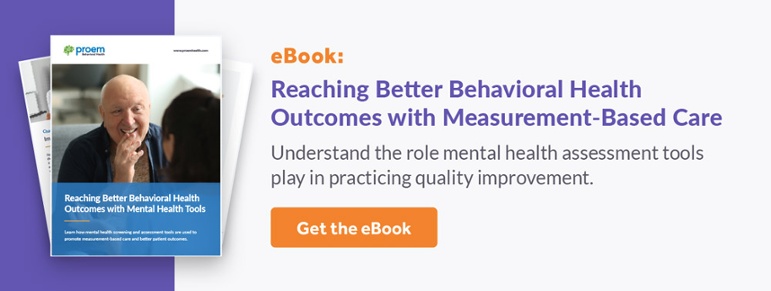
The Centers for Medicare & Medicaid Services (CMS) has announced a new behavioral health model intended to improve quality of care and outcomes for those with moderate to severe behavioral health conditions, including mental health conditions and/or substance use disorders (SUDs). The Innovation in Behavioral Health Model (IBH) is a welcomed development and one that could improve access to care, help bridge the significant gaps that have long existed between behavioral and physical health, and better meet the health-related social needs of those covered by Medicare and Medicaid.
While some details about IBH have yet to be announced, and CMS's first activities around the new model will not begin until this fall, there are several key points about IBH that behavioral health providers should know now.
Integrated Care in a Behavioral Health Setting
IBH is intended to create a "no wrong door" approach to getting patients the behavioral health, physical health and social supports they need, regardless of where they enter the health care system and begin their care journey. Participating behavioral health practices will be empowered to screen for and address both behavioral health conditions and physical health conditions. These practices will collaborate and coordinate services with primary care, other physical health providers and community-based partners that help with health-related social needs (e.g., housing, food, transportation).
CMS hopes these efforts translate to the delivery of whole-person care that leads to reductions in avoidable emergency department and inpatient visits and overall Medicare and Medicaid program expenditures.
Funding to Improve Information Technology (IT)
To support IBH's care delivery framework and build the capacity to facilitate integrated care, CMS will provide IT infrastructure funding and execute other related activities. These will include money and other support for electronic health record (EHR) systems, telehealth tools, IT workflows, and staffing development and retention planning.
Eligibility to be Determined
Starting this fall, CMS will select up to eight states (or the District of Columbia or U.S. territories) to participate in IBH through cooperative agreements. Interested states will be required to apply.
Within the locations selected, eligible practice participants must meet several criteria, including being community-based behavioral health organizations, licensed by their state to deliver mental health and/or SUD services, and meet state-specific Medicaid provider enrollment requirements and be eligible for Medicaid reimbursement. The practice participant enrollment period will begin in the fall and go through the third quarter of 2025.
The pilot period for the Innovation in Behavioral Health Model is expected to operate for eight years.
Proem's Role Within Integrated Behavioral Health
Proem applauds CMS for this new initiative and looks forward to helping participating IBH practices meet the model's requirements and achieve its objectives. The Proem software platform simplifies the mental health care journey by quickly and efficiently screening, assessing and measuring behavioral health outcomes. We offer exclusive licensed digital behavioral health assessments that providers can use to help diagnose behavioral health issues. Our clinical workflow software also monitors and tracks patient progress and documents covered services for billing.
Proem can and should be an essential element of any integrated behavioral health model because it helps behavioral health and physical health care providers to:
- triage patients to the appropriate level of behavioral health care based on the conditions for which they screen positively, regardless of where they entered the health care system;
- assess the most commonly diagnosed DSM-5 mental health disorders using a single, simple tool;
- follow the patient's progress throughout treatment to adjust plans and measure outcomes;
- document and communicate treatment plans and outcomes to all care team providers through patient reports that can be integrated with EHRs; and
- provide outcomes data electronically to support reporting requirements for value-based payments.
To find out more about how the Proem workflow solution supports integrated behavioral health, book a meeting.





.png)









